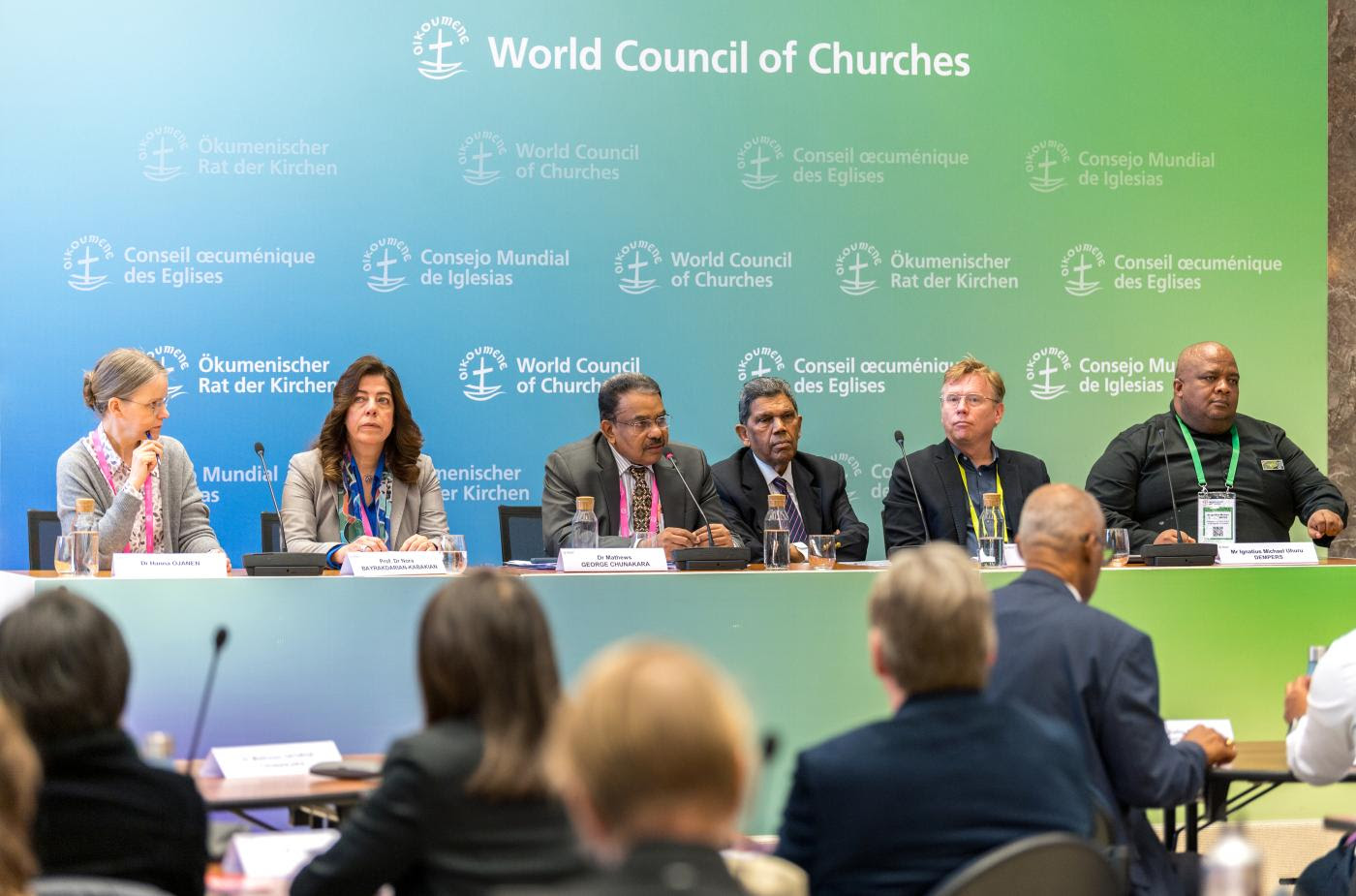Rev. Dr Kenneth Mtata, WCC programme director for Public Witness and Diakonia, said the discussion focussed on whether the church can bear witness in our times. Dr Bertrand Ramcharan, a former leading UN human rights official from Guyana, said, "The churches have always had a leading role as a community of thought." Ramcharan worked as a deputy under then-UN secretary-general Sergio Vieira de Mello, who was killed on 19 August 2003 during the attack on the United Nations headquarters in Baghdad. "We live in a time of deep convulsions within countries and adjustment in the relations among major powers. And we must ask ourselves, what is the basis for coexistence among these powers?" said Ramcharan. Non-governmental organizations and civil society are the conscience of the world, said the former UN official. Civil society, including the churches, is part of the process, and conflicts must be managed with respect for humanity. Dr Hanna Ojanen of the Evangelical Lutheran Church of Finland and a research fellow and assistant professor, spoke about global insecurity. One layer of this stems from climate emergencies, with quickly changing living conditions for human beings and other living beings. "We need preparedness. And we need cooperation; we need a lot of thinking ahead, but we are only sometimes capable of doing that,” she said. Struggle for justice Uhuru Ignatius Dempers, director for Social Development at the Evangelical Lutheran Church of Namibia, was critical of the churches' role in the current economic system. "The geopolitical situation in the world is dynamic and ever-evolving. But the experiences of those on the receiving end has been, and remains, almost the same", said Dempers. “In the colonial period, people fought hard for their political independence. "But the situation for many has not changed," said the Namibian, whose country was colonized by Germany and South Africa. "It's no more the military and the colonial presence, but other mechanisms have been used," noted Dempers. "But what we have observed is that the church's prophetic voice has slowed down." He said that in the struggle against the South African ideology of apartheid and in anti-colonial struggles, "the World Council of Churches supported us to gain our independence.” "We don't feel that the churches are in this new phase of the struggle for social and economic justice," Dempers rued. A new era Dr Nora Bayrakdarian-Kabakian from the Armenian Apostolic Church said, “The world is stepping into a new era – an era of uncertainties and unpredictability.” This is at multiple levels, she said, and there is conflict escalation, transgression of international norms and there are multiple types of violence, new wars, and artificial intelligence with actions done with impunity. “Artificial intelligence technology has the power to affect everything about human conflict, including whether humans are involved or not,” she said. Bayrakdarian-Kabakian said a digital revolution, with no legal regulation, is sweeping through military forces on the planet. “That's the reality we have to deal with. Is this really what we want from technological development?” Reaching consensus Prof. Mats Målqvist, a professor of global health at Uppsala University, said that many of the world's health problems from the 1950s and 1960s had been addressed. Also, "the number of absolutely poor people as a proportion has shrunk over the past decades. But what we have now started to realise is that fossil fuels have fueled all of these health gains. "They were fueled by us using the resources from pollution. And there is a direct correlation between life expectancy and ecological footprints." Målqvist said this means the world is trapped and saddled with "an unsolvable problem." "We have to learn to live with uncertainty, not knowing, not having straight solutions," said the Swedish professor. "We need to reach a consensus without being right. And the church has a great role to play in it.” Three WCC commissions meet to confront emerging global challenges (WCC news release, 5 March 2024) Photo gallery: Joint Meeting of Three WCC Commissions – March 2024 | 



No comments:
Post a Comment